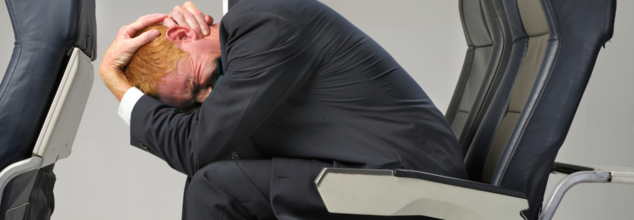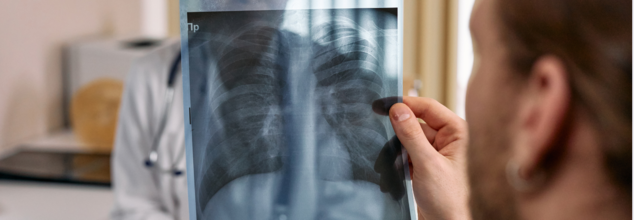- Health Conditions A-Z
- Health & Wellness
- Nutrition
- Fitness
- Health News
- Ayurveda
- Videos
- Medicine A-Z
- Parenting
- Web Stories

Drinking electrolytes for health (Credit-Canva)
Experts Warn Drinking Too Much Electrolytes Can Be Dangerous For You!
We all know the importance of drinking water. We are always encouraged to have more water, yet for some, getting in those eight glasses a day can be a struggle. So, a better solution is to drink with electrolytes as they are filled with nutrients and minerals (and taste!).
When we are low on energy and dehydrated, many opt to drink electrolytes as it is a convenient way to replenish the nutrients in the body. They typically contain sodium, potassium, and other electrolytes that help maintain fluid balance and support cellular functions. So, any worries about getting Hyponatremia are out of the window! However, it's important to consume them in moderation. Overconsumption of electrolytes, especially sodium, can strain the kidneys and lead to health issues like high blood pressure.
What Happens When There Is Electrolyte Imbalance?
According to Medline Plus an electrolyte imbalance occurs when the levels of essential minerals in your body, such as sodium, potassium, and chloride, become too high or too low. This delicate balance can be disrupted by various factors, leading to health issues.
Dehydration
When you don't drink enough fluids, your body becomes dehydrated, leading to a loss of essential electrolytes. This can occur during intense physical activity, hot weather, or illness.
Overhydration
Consuming too much water, especially without adequate electrolyte intake, can dilute the blood and disrupt the balance of electrolytes. This condition, known as hyponatremia, can be serious.
Kidney Disease
The kidneys play a crucial role in regulating electrolyte balance. When kidney function is impaired, it can lead to electrolyte imbalances.
Liver Disease
The liver helps regulate fluid balance and electrolyte levels. Liver disorders can disrupt these functions, leading to imbalances.
Heart Disease
Certain heart conditions, such as heart failure, can affect the body's fluid balance and electrolyte levels.
Why Do We Need Electrolytes?
American Heart Associationtells us that while electrolyte supplements can be helpful in certain situations, it's important to use them wisely. Electrolytes are essential minerals that carry an electric charge. They help your body function in many ways, like regulating your heart rate, blood pressure, and fluid balance. Some common electrolytes include calcium, magnesium, phosphorus, sodium and potassium. Most people can get enough electrolytes from a healthy diet. Foods like fruits, vegetables, dairy products, and whole grains are good sources. However, if you're sweating a lot, have diarrhea, or are taking certain medications, you might need to pay more attention to your electrolyte intake.
You Don't Need To Rely On Electrolytes
Electrolyte drinks are particularly useful for individuals who engage in intense physical activity, such as athletes, or those experiencing significant fluid loss due to illness or excessive sweating. These individuals may benefit from the rapid replenishment of electrolytes to prevent dehydration and optimize performance. However, for most people, a balanced diet and adequate water intake are sufficient to maintain electrolyte balance.
For most exercisers, water is sufficient to stay hydrated.
But for those are involved in high-intensity workouts lasting more than 75 minutes, a sports drink with electrolytes can be beneficial- and often needed. These drinks provide a quick source of energy and help replace lost minerals. However, it's important to choose a sports drink with moderate sugar content to avoid excessive calorie intake. Too much sodium can lead to high blood pressure, and too much potassium can cause heart problems. If you're unsure about whether you need an electrolyte supplement, talk to your doctor.
Electrolytes are important for good health, but they're not a magic potion do not depend on them and ignore all the other body essentials you need for a healthy living. By eating a balanced diet and staying hydrated, you can typically get all the electrolytes you need. If you're concerned about your electrolyte levels, consult with a healthcare professional.

Credits: Canva
Why More People Are Anxious About Flying—And What You Can Do About It
There has been a recent increase in aviation-related headlines and tragic incidents that has triggered renewed anxiety about air travel. This has happened to even those who have previously felt at ease about boarding a flight. Statistics have continued to show that flying is one of the safest ways to travel, whoever, the number of people who have been affected by the fear of flying, or aerophobia has only grown.
This is based on the reports from psychologists, airport staff, and airline crew suggested a noticeable uptick in passengers expressing nervousness about flying. This trend is not just limited to those who have a long-standing fear of air travel. This has now been affecting to even those who were not concerned about it before. This may be due to the increasing media coverage, heightened safety concerns, and ongoing stress from broader life circumstances.
The recent data from the industry reflects a decline in air travel during early spring. While some airlines have suggested economic uncertainty and reduced government travels, the evidence suggest that there have been concerns over safety and psychological toll on recent aviation events, which has led to the decline in numbers.
Flight crews, especially those based near recent accident locations, have also felt the impact. Some crew members have taken time off to cope emotionally, and in a few cases, even left the profession due to increased stress.
What Is Aerophobia?
As per Trauma Research UK, aerophobia is an irrational fear or anxiety related to flying or being in aeroplanes. It is a type of specific phobia, which is an excessive or irrational fear of a particular object, situation, or activity. People with aerophobia may also experience intense anxiety, panic attacks, or avoidance behaviour when faced with situations involving air travel, such as boarding a plane, visiting an airport or even just thinking about flying.
How Does It Start?
It usually starts like how all other phobias start, from a 'learned behaviour'.
Bad Experience: A bad experience can be anything from experiencing turbulence, experiencing some form of trauma whilst abroad, seeing a frightening film as a child or feeling unwell on a plane
Copying A Parent: A lot of behaviour that we often do comes from looking at our parents If as a child, you have witnessed a grown up, who is supposed to be your protector, be scared of flights. Chances are, you will be scared too.
Becoming A Parent: Your parental protection instincts have kicked in and this fear may accelerate and become a phobia.
Transference: This often occurs when facing a stressful event whilst on holiday. As you are sitting on the plane homeward bound, the suppressed anxiety and stress catch up with you, causing an anxiety attack.
Psychologists also suggest that as individuals take on more responsibilities—like starting families or advancing in careers—their sense of vulnerability can increase, sparking fears that didn’t exist before.
Traumatic flight experiences, such as severe turbulence, can also act as a trigger. In some cases, broader anxiety disorders—such as social or travel-related stress—intersect with aerophobia, compounding the fear.
What Are The Symptoms?
For some, the fear of flying can lead to full-blown panic attacks. These may involve shortness of breath, dizziness, nausea, or a sense of being trapped. Airline crew members often assist passengers experiencing panic, sometimes administering oxygen or offering calming support during the flight.
How Can You Cope?
Deep breathing: Practicing longer exhales helps activate the body’s relaxation response.
Exposure therapy: This can involve gradually facing flight-related triggers—starting with looking at plane photos, watching flight videos, or using virtual reality simulations.
Mindfulness and acceptance: Learning to tolerate uncomfortable feelings rather than fight them can make anxiety more manageable.
Journaling symptoms: Some therapists recommend keeping a count of anxious moments to foster acceptance and track progress.

Credits: Canva
What Role Does Naturopathy Play In General Healing?
As times are changing, all of us are going back to traditional approaches, whether it is Ayurveda, Homoeopathy or Naturopathy. These are alternative medicines and are useful in treating many diseases, especially through lifestyle changes. Most of these alternative medicines focus on preventive care. Today, we try to find out what one might be in for when they choose Naturopathy as a way of healing. What does it do? How does it differ from Ayurveda? How can it complement the regular day-to-day modern medicines?
For this, the Health and Me team spoke to Dr Prashanth Shetty, Principal at SDM College of Naturopathy and Yogic Science, Ujire.
What Is Naturopathy?
As the doctor explains, Naturopathy is a holistic approach to medicine that believes in the body’s innate ability to heal itself. It focuses on the root cause of illnesses, not just symptoms, and promotes natural healing through diet, lifestyle modifications, herbal remedies, hydrotherapy, and physical therapy.
"Naturopathy emphasizes natural healing, disease prevention, and lifestyle modification, aiming to restore balance and promote long-term wellness,” says Dr Shetty.
Unlike allopathic medicine, which often relies on pharmaceuticals and surgeries to treat disease symptoms, naturopathy works by supporting the body’s self-healing process.
How Does Naturopathy Complement Modern Medicine?
Naturopathy is increasingly being integrated with modern medical practices. It works well as a complementary therapy, especially in managing chronic conditions. For instance, naturopathic therapies such as acupuncture and nutrition counselling can reduce side effects of medications or improve treatment outcomes.
Patients undergoing treatment for diabetes, hypertension, arthritis, or even cancer may benefit from a combined approach—using conventional medications alongside naturopathic suggestions on diet, exercise, and stress reduction. This not only reduces dependency on medication but also empowers patients to actively participate in their healing journey.
Can It Help With Chronic Conditions?
Dr Shetty points out instances where Naturopathy has helped patients who have been battling with chronic diseases:
Diabetes: Naturopathic approaches like dietary changes, herbal supplements, and stress management can complement conventional treatments.
Hypertension: Lifestyle modifications, such as diet, exercise, and stress reduction, can be used alongside medication to manage blood pressure.
Arthritis: Naturopathic treatments like acupuncture, herbal remedies, and physical therapy can help manage pain and inflammation.
Mental Health
Anxiety and Depression: Naturopathic approaches like mindfulness, meditation, and herbal supplements can be used alongside conventional treatments.
Stress Management: Naturopathic techniques like yoga, deep breathing, and relaxation can help manage stress.
Digestive Health
Irritable Bowel Syndrome (IBS): Naturopathic approaches like dietary changes, probiotics, and stress management can help manage symptoms.
Inflammatory Bowel Disease (IBD): Naturopathic treatments like dietary modifications, herbal supplements, and stress reduction can complement conventional treatments.
Women's Health
Menstrual Disorders: Naturopathic approaches like herbal supplements, dietary changes, and stress management can help regulate menstrual cycles.
Menopause: Naturopathic treatments like herbal supplements, dietary changes, and lifestyle modifications can help manage symptoms.
Naturopathy vs Ayurveda: Are They the Same?
Though both systems promote natural healing, they are fundamentally different. “Naturopathy and Ayurveda are not the same—they are distinct systems of natural medicine with different foundations and limitations,” says Dr Shetty.
Naturopathy is grounded in the belief of self-healing through nature, whereas Ayurveda is rooted in the concept of balancing the body's three doshas—Vata, Pitta, and Kapha. Naturopathy commonly uses diet, hydrotherapy, and herbal medicines, while Ayurveda may include massages, herbal formulations, and treatments based on dosha types.
Additionally, naturopathic education is often structured and formalized, while Ayurvedic learning can also be passed down traditionally through apprenticeships.
While both the systems do share certain similarities—like emphasizing prevention, detoxification, and the use of herbal remedies; they follow a different framework and diagnostic methods. Naturopathy focuses more on individual's lifestyle and the environmental factors, whereas Ayurveda relies more on the ancient texts and doshic assessments, points out the doctor.
Personalized and Preventive
What makes naturopathy stand out is that it is personalized in nature and is based on each individual's lifestyle, their dietary habits, what suits them and what does not and their stress levels. It also evaluates emotional well-being, as well as the environment that may be the cause of their diseases or disorders.
At the core of naturopathy is prevention. It focuses more on preventing a disease even before the symptoms show up. By encouraging early lifestyle interventions, regular detoxification, and stress management, naturopathy helps reduce disease incidence, hospital visits, and the long-term burden on healthcare systems.
Reducing Healthcare Burden
There is an overgrowing burden on the healthcare system. While it is not to say that this must not be changed however, with alternative medicines like naturopathy, which emphasizes on preventive care, it can help lessen the burden. Naturopathy also focuses on educating individuals to take control of their health. The approaches used are: balanced nutrition, exercise, and mindfulness. As Dr Shetty notes, this not only empowers patients but also reduces the reliance on medication and minimizes hospital visits—ultimately easing the strain on healthcare infrastructure.

Credits: Canva
Young Non-Smoker Dies Of Terminal Lung Cancer After Being Misdiagnosed With Anxiety; Early Signs To Watch For
At 36-year-old Liam Handley, a fit, non-smoking man from Derbyshire, U.K., walked into his doctor’s office for the first time complaining of chest pain and palpitations, cancer was the last thing anyone suspected. Diagnosed instead with anxiety—a condition he had quietly battled for much of his adult life—Liam was sent home with increased doses of medication. What followed was a tragic and avoidable series of delays, assumptions, and overlooked warning signs that would eventually lead to his untimely death from terminal lung cancer.
Liam’s story is a heartbreaking reminder that lung cancer is not confined to those who smoke. It’s a wake-up call to patients, families, and healthcare professionals alike: lung cancer can strike anyone—regardless of lifestyle, age, or medical history.
Liam, who had red hair and dyslexia, often found himself subject to ridicule growing up. Later, his anxiety became a quiet undercurrent of his identity—something that doctors all too readily used as a blanket explanation for any new symptoms. When he reported persistent chest pain, shortness of breath, and palpitations, these signs were attributed to psychological stress.
His mother, Lynn Handley, still wonders how such critical symptoms could be missed. “Liam did not fit the stereotypical image of a lung cancer patient. He was young, a non-smoker, and in relatively good shape,” she said. “It wasn’t in our heads—and it clearly wasn’t in the GP’s either. And that’s the problem.”
How Early Signs Were Overlooked
When Liam’s symptoms intensified in mid-2020, his father took him to the hospital fearing a heart attack. Doctors discovered blood clots in his lungs—a red flag for a more serious underlying issue—but treated the clots with blood thinners and planned a CT scan that never happened due to COVID-19 delays.
As weeks passed, Liam's pain spread to his shoulders and lower back. He was prescribed stronger pain medication, but still, no further imaging or diagnostic testing was conducted by the public healthcare system. Eventually, the family paid out-of-pocket for a private CT scan. That scan changed everything.
Liam was diagnosed with metastatic lung adenocarcinoma, a form of non-small cell lung cancer that had already spread to his liver, spine, lymph nodes, and bones. The subtype—EGFR Exon19 positive—is a genetically driven mutation that disproportionately affects non-smokers and younger patients.
Despite being given just 5-6 weeks to live, Liam initially responded well to targeted therapy with Osimertinib, chemotherapy, and immunotherapy. He even married his long-term partner Louise in a quiet ceremony. For a brief moment, life seemed to regain some normalcy.
But by April 2021, the cancer had progressed. His treatments stopped working, and Liam’s health began to deteriorate rapidly. Dependent on oxygen, and weakened by disease, Liam passed away in October 2021—just shy of his 37th birthday.
Lynn Handley is now committed to raising awareness about lung cancer in people who don’t smoke. “We were angry. It took nine months for Liam to get a diagnosis. Those were months we could have used to fight harder, to plan better, to say goodbye on our own terms.”
Her advocacy isn’t just rooted in grief—it’s a call to action for healthcare systems and patients around the world.
Can Non-Smokers Get Lung Cancer?
Contrary to long-held assumptions, a significant proportion of lung cancer cases now occur in people with no history of smoking. The American Cancer Society reports that approximately 10-20% of lung cancers in the U.S. are found in non-smokers, often attributed to genetic mutations like EGFR, environmental exposures, or radon gas.
These cases are more common in women, younger adults, and individuals of East Asian descent, but—as Liam’s story demonstrates—they can affect anyone.
Early Signs and Symptoms to Look Out For
Lung cancer symptoms can mimic less serious conditions, which is why they’re often dismissed or misdiagnosed. If you experience the following symptoms persistently, don’t ignore them—regardless of your age or smoking history:
- Chest pain or discomfort
- Unexplained shortness of breath
- Persistent cough or wheezing
- Shoulder, back, or rib pain
- Fatigue or sudden weight loss
- Blood in sputum (though not always present)
Liam’s story is not just about a misdiagnosis—it’s about systemic bias. The assumption that lung cancer is a “smoker’s disease” delays diagnoses in healthy, younger adults. Primary care physicians and specialists must rethink their criteria for imaging and referrals. As Lynn Handley put it, “Why wasn’t a chest X-ray even considered?”
The COVID-19 pandemic added another barrier to care—delaying critical scans and overwhelming systems worldwide. But the cost of that delay, in Liam’s case, was irreversible.
If you're experiencing unexplained respiratory symptoms—don’t hesitate to ask for further investigation. Insist on imaging. Seek second opinions. Cancer doesn’t always follow the rulebook, and neither should your approach to protecting your health.
© 2024 Bennett, Coleman & Company Limited

